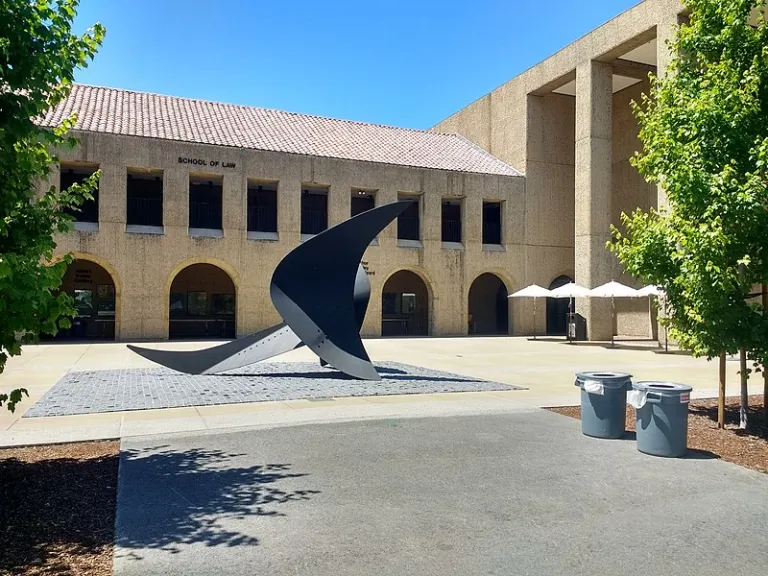With the future of the Deferred Action for Childhood Arrivals (DACA) program left uncertain after a series of legal challenges, Stanford legal experts anticipate Hanen’s final ruling could seal DACA’s fate or lead to a Supreme Court case. Current DACA recipients, also known as Dreamers, entered the U.S. as undocumented immigrants before they turned 16. They receive some federal protection from deportation and access to federal resources through DACA but are not granted a pathway to citizenship.
On Oct. 5, the Fifth Circuit Court of Appeals ruled the program unlawful in an affirmation of U.S. District Judge Andrew Hanen’s ruling last year. Hanen ruled on the case in July 2021, declaring it illegal due to procedural issues with the creation of the program. Hanen’s ruling does not affect the status of current Dreamers but bars further applications.
The Biden administration appealed the ruling in Sept. 2021. However, after the recent fifth circuit ruling, it was sent back to Hanen to evaluate new regulations introduced by the administration in an effort to save DACA.
Associate Director of the Stanford Law School Immigrants’ Rights Clinic and Law Lecturer Lisa Weissman-Ward characterized DACA as a program created because there were no legislative measures to protect young people who came to the U.S.
“The program allows them to apply for driver’s licenses, social security numbers and work permits but doesn’t grant them a pathway to citizenship nor does it give them legal status,” Weissman-Ward said.
One key benefit of DACA is that it allows students to enroll in higher education and receive financial aid, said Jorge Barrera Rojas, who is a constitutional law professor at the University San Sebastian and a Stanford Constitutional Law Center fellow. However, there are caveats to this aspect of the program.
“The reality is that 34 states provide limited access to in-state tuition to the state’s undocumented students and/or DACA recipients, and 16 states and Puerto Rico have either no policies, restrictive policies or actively prohibitive policies for the state’s resident undocumented students” Barrera Rojas said.
According to him, the ruling was not unexpected, since the same court ruled against Deferred Action for Parents of Americans and Lawful Permanent Residents (DAPA) with similar legal rationale.
The court concluded DAPA violated the Administrative Procedure Act (APA), which oversees how federal agencies develop and issue regulations. Their rationale was that the Department of Homeland Security failed to follow the notice-and-comment process, meaning they did not notify and allow for feedback from the public as mandated by the APA. According to the ruling, DAPA was “contrary” to the Immigration and Naturalization Act, which prevents deferred action.
The conclusions on Oct. 5 were similarly based on procedural issues.
“The challenge we’ve been seeing is that it didn’t go through the necessary agency rulemaking steps,” Weissman-Ward said. “As it relates to procedural challenges, the district court and the Fifth Circuit found that it was unlawfully published without required notice and comment procedure.”
Texas’ suit in 2018, which culminated in Hanen’s ruling, argued DACA was illegal since it should have been created by legislation not executive order. The new regulations change a few provisions within DACA.
While a panel of three judges on the fifth circuit affirmed Judge Hanen’s initial ruling, they sent it back to Hanen to consider whether the new regulations changed his judgment on the legality.
Additional legal arguments are expected after the new regulations go into effect on Oct. 31, but there is currently no date for future hearings or a final decision.
It is widely anticipated that the issue will reach the Supreme Court. This would be the third time the Court hears a case regarding DACA’s legality — the first was decided in 2016 (United States v. Texas) and the second in 2020 (Department of Homeland Security v. Regents of the University of California).
The University addressed the ruling in an Oct. 10 message to the community and shared resources for DACA and undocumented students.
“We want students to know there are people here at Stanford who are able to offer their support and care and can guide you through the various resources available on and off campus,” wrote Dean of Students Mona Hicks.
Some students, including members of Stanford’s ACLU chapter were disappointed by this decision.
“The October 5th Fifth Circuit ruling was both legally wrong and morally unjust,” wrote Nicole Domingo, co-president of Stanford ACLU. They added that they will continue to fight for immigrants’ rights and support them through activism, along with other student organizations and immigrant communities.
